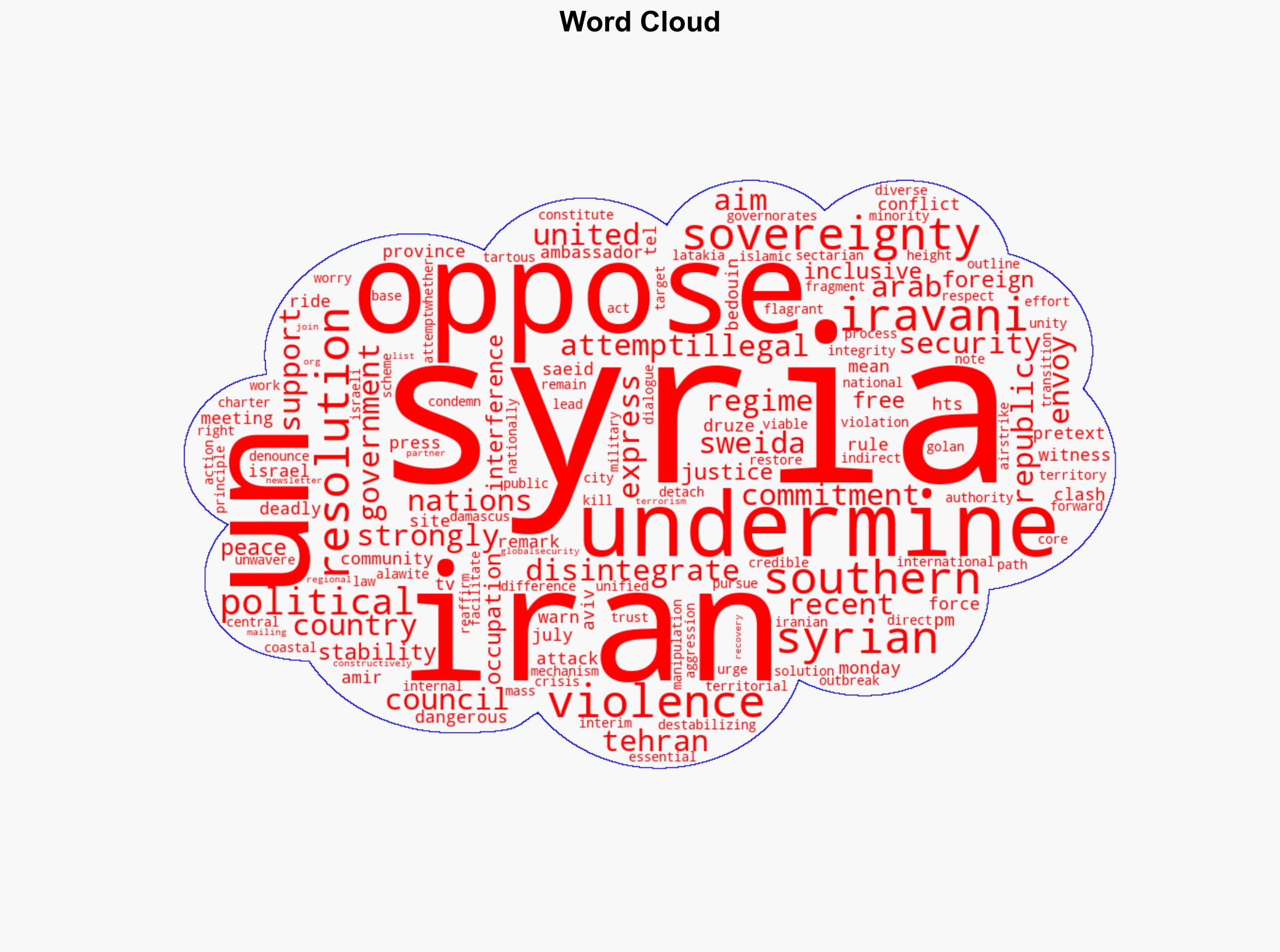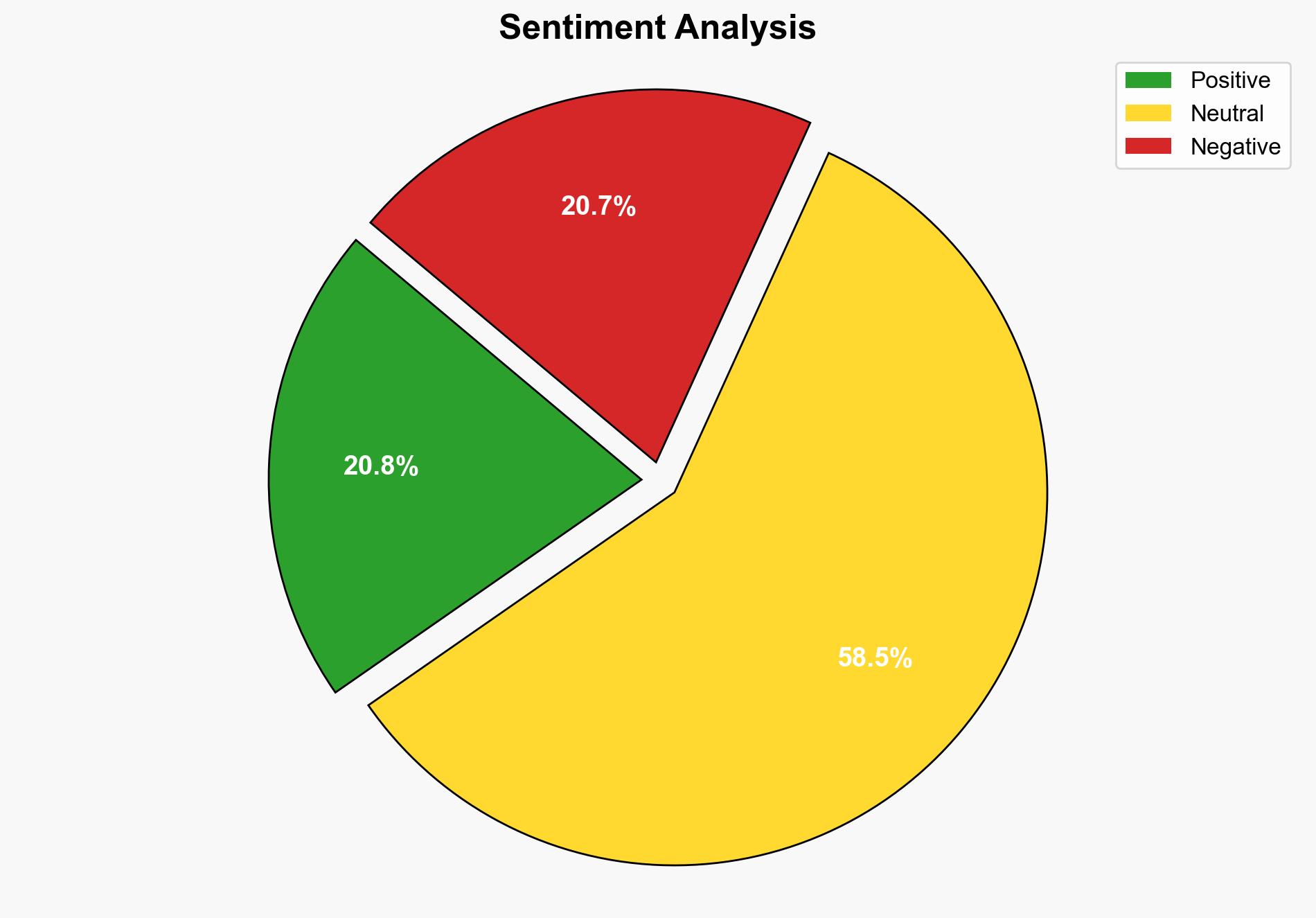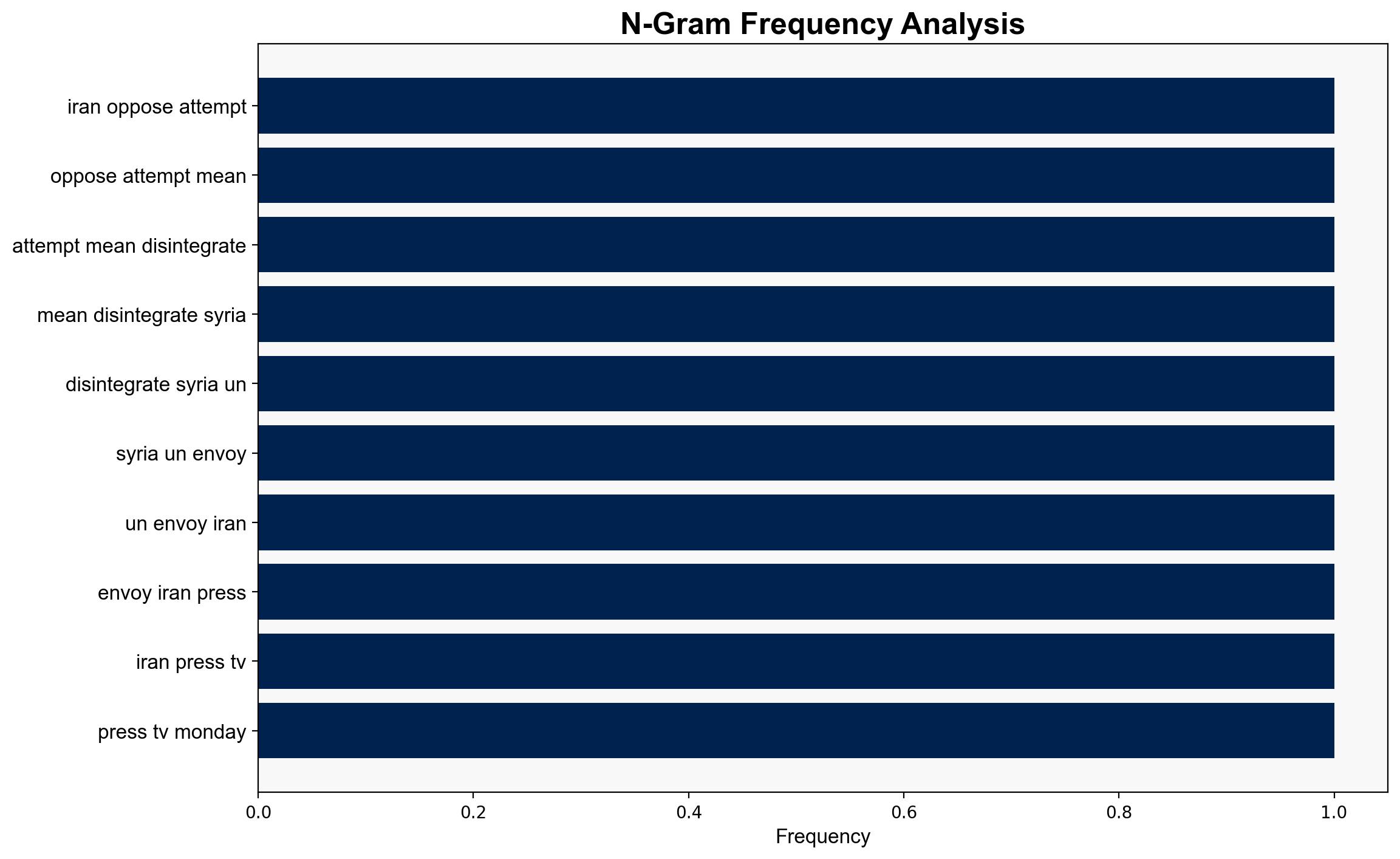Iran opposes any attempt meant to disintegrate Syria UN envoy – Globalsecurity.org
Published on: 2025-07-29
Intelligence Report: Iran opposes any attempt meant to disintegrate Syria UN envoy – Globalsecurity.org
1. BLUF (Bottom Line Up Front)
Iran’s firm opposition to any actions perceived as undermining Syria’s sovereignty is driven by its strategic interests in maintaining regional influence and stability. The most supported hypothesis is that Iran seeks to counter external influences, particularly from Israel and Western powers, to safeguard its ally, Syria. Confidence level: Moderate. Recommended action: Monitor Iran’s diplomatic and military activities in Syria, and engage in multilateral dialogues to address regional security concerns.
2. Competing Hypotheses
1. **Hypothesis A**: Iran’s opposition is primarily motivated by a desire to maintain its strategic influence in Syria and counterbalance Israeli and Western actions in the region.
2. **Hypothesis B**: Iran’s statements are largely rhetorical, aimed at domestic and regional audiences to project strength and solidarity with Syria, without significant changes in its actual policy or military posture.
Using ACH 2.0, Hypothesis A is better supported due to Iran’s historical actions and consistent policy of supporting the Syrian government. Iran’s condemnation of Israeli actions and emphasis on sovereignty aligns with its strategic objectives. Hypothesis B lacks substantial evidence of a shift in Iran’s operational behavior.
3. Key Assumptions and Red Flags
– **Assumptions**: Iran’s commitment to Syria is unwavering; Israel’s actions are perceived as aggressive by Iran.
– **Red Flags**: Potential exaggeration of threats by Iran to justify its presence in Syria. Lack of detailed evidence on Iran’s military capabilities and intentions in the region.
– **Blind Spots**: Limited insight into internal Iranian decision-making processes and potential shifts in alliances.
4. Implications and Strategic Risks
– **Geopolitical**: Increased tensions between Iran and Israel could lead to broader regional instability. Iran’s actions may provoke responses from Western powers, complicating diplomatic efforts.
– **Economic**: Prolonged conflict in Syria could disrupt regional trade routes and energy supplies.
– **Psychological**: Heightened sectarian tensions in Syria could undermine public trust in political processes, affecting long-term stability.
5. Recommendations and Outlook
- Enhance intelligence-sharing with regional allies to monitor Iranian activities in Syria.
- Facilitate diplomatic engagements to address security concerns and reduce tensions between Iran and Israel.
- Scenario Projections:
- **Best Case**: Diplomatic resolutions lead to de-escalation and stabilization in Syria.
- **Worst Case**: Escalation of military confrontations between Iran and Israel, drawing in regional and global powers.
- **Most Likely**: Continued low-intensity conflict with periodic escalations, maintaining the status quo.
6. Key Individuals and Entities
– Amir Saeid Iravani
– Israel (referred to as the Tel Aviv regime in the source)
– Druze community and Bedouin groups in Syria
7. Thematic Tags
national security threats, regional stability, geopolitical strategy, Middle East conflict





